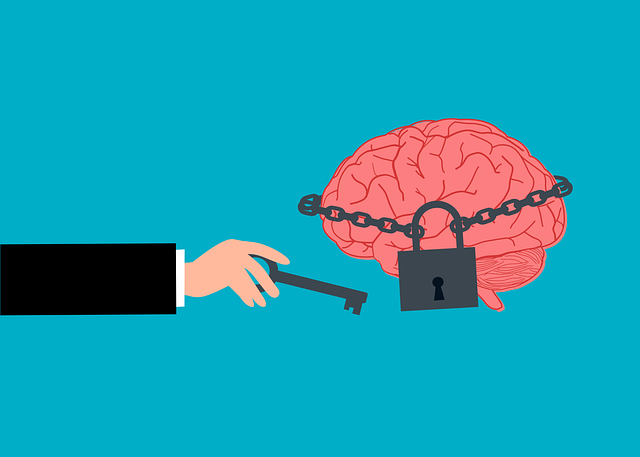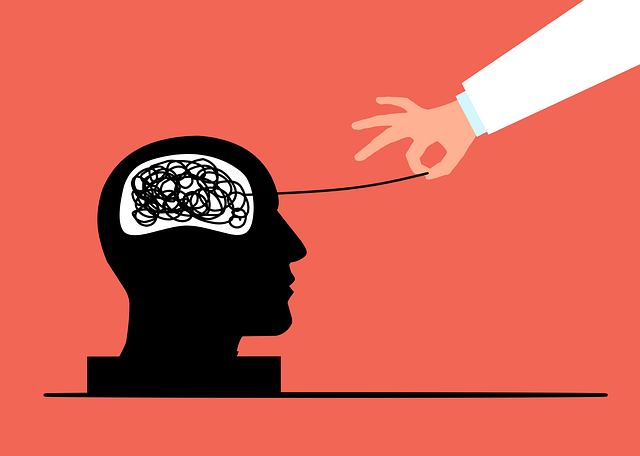Mental wellness self-assessment tools incorporating Cognitive Processing Therapy (CPT) are powerful initiators of therapy and personal growth journeys for adults. CPT identifies and reshapes negative thought patterns, encouraging reflection, belief challenge, and adaptive coping strategies to build resilience and positive thinking. Integrating CPT into engaging formats like a Mental Wellness Podcast Series enhances self-assessment effectiveness. Digital tools offer accessible, personalized therapy recommendations based on unique needs, promoting mental wellness through tailored interventions for anxiety relief and positive mindset development.
Mental wellness self-assessment tools have emerged as powerful resources, enabling individuals to take an active role in their mental health. This article explores the development and significance of these tools, with a focus on Cognitive Processing Therapy (CPT), which offers valuable insights into adult assessment. We delve into effective strategies for creation, the integration of technology for accessibility, and how personalized therapy recommendations can enhance self-care. Discover how these tools are revolutionizing mental health management.
- Understanding Mental Wellness Self-Assessment Tools
- The Role of Cognitive Processing Therapy in Adult Assessment
- Developing Effective Self-Assessment Tools for Mental Health
- Integrating Technology for Accurate and Accessible Evaluations
- Enhancing Self-Care through Personalized Therapy Recommendations
Understanding Mental Wellness Self-Assessment Tools

Mental wellness self-assessment tools play a pivotal role in individuals’ journeys towards better mental health. These tools are designed to help people gain valuable insights into their emotional and psychological well-being, often serving as the first step towards therapy or personal growth initiatives. By offering a comprehensive evaluation of one’s thoughts, feelings, and behaviors, these assessments can be powerful facilitators for self-discovery and change.
One such effective method is Cognitive Processing Therapy (CPT), which focuses on identifying and modifying unhelpful thought patterns that contribute to distress. CPT encourages individuals to reflect on their experiences, challenge negative beliefs, and develop more adaptive coping strategies. In the context of mental wellness, this therapy empowers adults to navigate challenges with resilience, fostering positive thinking and inner strength development. The integration of such therapeutic techniques into self-assessment tools can significantly enhance their effectiveness, especially when coupled with engaging formats like a Mental Wellness Podcast Series Production, which adds accessibility and interactivity to personal growth resources.
The Role of Cognitive Processing Therapy in Adult Assessment

Cognitive Processing Therapy (CPT) plays a pivotal role in mental wellness self-assessment tools for adults, offering a structured framework to understand and address complex psychological issues. CPT focuses on modifying unhelpful thought patterns and behaviors by facilitating more adaptive and positive thinking processes. This therapy is particularly effective in treating various conditions such as depression, anxiety disorders, and post-traumatic stress disorder (PTSD). By helping individuals recognize and challenge negative or distorted cognitions, CPT empowers them to develop healthier coping strategies.
The integration of Cognitive Processing Therapy into self-assessment tools enhances mental health awareness and promotes compassion cultivation practices. This approach encourages individuals to explore their thoughts and emotions with curiosity and kindness, fostering a more compassionate relationship with themselves. Such practices contribute to building resilience and improving overall well-being, making CPT a valuable asset in the development of comprehensive mental wellness assessment resources for adults.
Developing Effective Self-Assessment Tools for Mental Health

Developing effective self-assessment tools for mental health is a multifaceted process that requires careful consideration of various psychological theories and practical applications. These tools play a pivotal role in empowering individuals to take charge of their mental wellness, enabling them to identify areas of concern, track progress, and make informed decisions regarding their well-being. One evidence-based approach gaining prominence is Cognitive Processing Therapy (CPT), which focuses on helping adults manage anxiety by challenging negative thought patterns. CPT encourages individuals to develop inner strength and emotional regulation skills, ultimately leading to improved mental health outcomes.
Self-assessment tools should be designed to facilitate honest self-reflection while maintaining user privacy and confidentiality. Incorporating techniques from Cognitive Processing Therapy can enhance these tools’ effectiveness in addressing common mental health challenges, such as anxiety relief. By providing users with structured frameworks to evaluate their emotional state, cognitive processes, and behaviors, these assessments empower them to actively participate in their therapy—whether formal or informal—and cultivate lasting strategies for inner strength development.
Integrating Technology for Accurate and Accessible Evaluations

Integrating technology into mental wellness self-assessment tools offers a promising avenue for accurate and accessible evaluations. Online platforms and mobile applications can provide individuals with easy-to-use resources, ensuring that therapy for adults becomes more convenient and inclusive. These digital tools often incorporate advanced algorithms to adapt questions based on user responses, offering personalized assessments. For instance, Cognitive Processing Therapy (CPT) techniques can be integrated into apps, enabling users to reflect on their thoughts and emotions while providing immediate feedback and guidance.
Furthermore, mindfulness meditation features in these applications promote self-awareness and stress management workshops organization within the digital space. Many platforms also offer empathy building strategies through interactive exercises, encouraging users to develop healthier coping mechanisms. By leveraging technology, individuals can now access valuable mental health resources at their fingertips, fostering a more proactive approach to managing and improving overall wellness.
Enhancing Self-Care through Personalized Therapy Recommendations

In today’s fast-paced world, prioritizing mental wellness is more important than ever. Leveraging technology to enhance self-care, individuals can receive personalized therapy recommendations based on their unique needs. Tools like Mental Wellness Podcast Series Production offer engaging and accessible ways to explore various therapeutic techniques, such as Cognitive Processing Therapy for Adults, which has proven effective in anxiety relief and fostering positive thinking.
By integrating these digital resources, people can take control of their mental health journey. Personalized therapy recommendations not only cater to individual preferences but also tailor interventions to specific challenges, ensuring a more impactful and sustainable impact on overall mental wellness.
Mental wellness self-assessment tools play a pivotal role in empowering individuals to take charge of their mental health. By integrating evidence-based practices like Cognitive Processing Therapy, these tools can offer valuable insights into an individual’s cognitive processes and emotional well-being. Development efforts should focus on creating effective, accessible platforms that utilize technology to provide personalized therapy recommendations, enhancing self-care and improving overall mental wellness. This approach ensures individuals have the resources needed to navigate their mental health journeys effectively.













